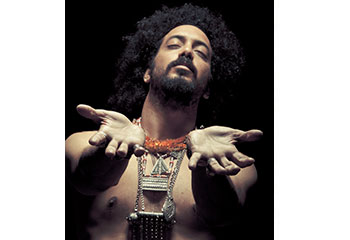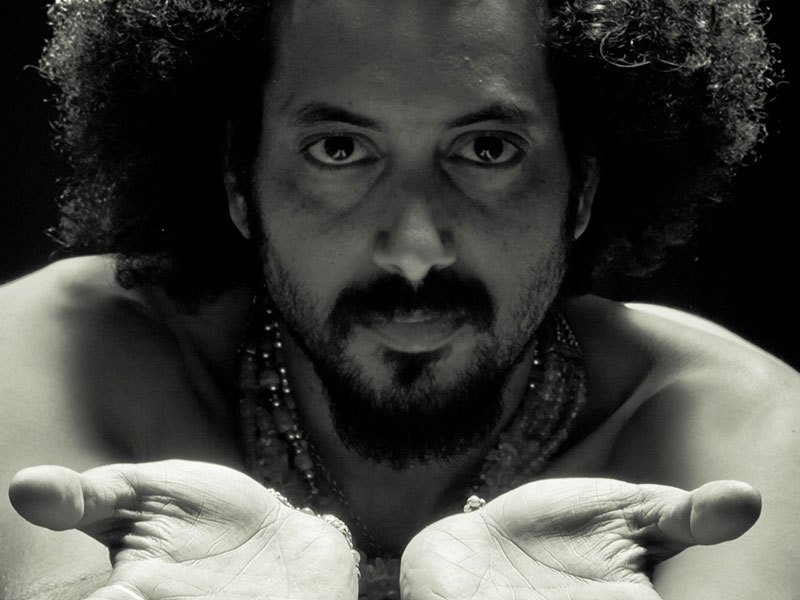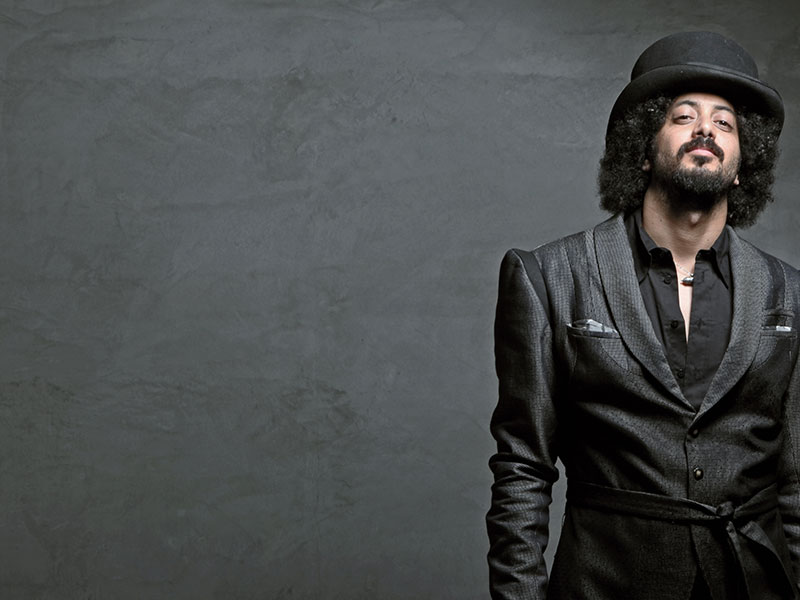Using the Yemeni synagogue chants and music of his childhood as a base, Ravid Kahalani mixed in a few other musical ingredients – jazz, funk and African music – to create the hot sound of Yemen Blues, the world music band he fronts.
The band will be raising the temperature during the cold Canadian winter, performing at the Aga Khan Museum in Toronto on Jan. 18.
Kahalani learned about his Jewish Yemeni heritage from his father, Yehuda, one of the 49,000 Yemeni Jews brought to Israel during Operation Magic Carpet in 1949 and 1950. “All the (Jewish) Yemenite chants, all the prayers, a lot of songs I learned from my father,” Kahalani said over the telephone from New York, where he’s based.
The centuries-old liturgic chants have been handed down from father to son for thousands of years. Although his father never spoke Yemeni Arabic to him, Kahalani now sings and records in it.
A born singer, Kahalani remembers walking in the streets of Bat Yam, Israel, singing when he was four years old. “I really liked to sing. It was always my passion,” he said.  “Later, learning the Yemeni singing and praying really helped me with my singing,” he added.
“Later, learning the Yemeni singing and praying really helped me with my singing,” he added.
In his early teens, Kahalani listened to reggae and rock music by artists like Bob Marley, Pink Floyd and the Doors. Twenty years ago, at 19, he left Holon, Israel, and moved to Tel Aviv, where he discovered American blues, jazz and funk, music that made an indelible impression on him. “I was going to this historic CD store in Tel Aviv and I was listening for hours to many kinds of blues from the 1920s to the ‘60s and a lot of free jazz and funk,” Kahalani said.
After a friend introduced him to music from North and West Africa, he said he realized the synagogue chants and Yemini music of his childhood and the music he heard in Tel Aviv were related. “I made the connection between my roots … to what I heard later,” he said.
That led to him incorporating his many musical influences into his singing. “It became a unique style of singing, a kind of evolution that happened to me as a singer,” he said
Kahalani’s song lyrics are as international as his music. On the band’s latest release, Insaniya (Humanity), listeners can hear vocals in Hebrew, Yemenite Arabic, Moroccan Arabic and French Creole. “I think of language as a tool for melody, and sometimes when the melody doesn’t fit the language, I use another language,” he said. “Sometimes a song starts with me singing in Yemeni Arabic, because I wanted to learn the language that my father never spoke to me. I make my music in a very intuitive way.”
READ: THE PASSING OF YEHUDA GILDEN, TORONTO’S JEWISH MUSIC MAVEN
The musicians Kahalani is bringing with him to Toronto – Shanir Ezra Blumenkranz on bass and oud, Brian Marsella on piano and keyboards, Ofri Nehemya on drums and Edo Gur on trumpet – come from the worlds of avant-garde music, rock and jazz. They bring their own sound and arrangements to Kahalani’s compositions.
Kahalani is also an instrumentalist, playing the gimbri, a three-stringed Moroccan rectangular lute commonly used by North African musicians, at performances. Kahalani learned to play the gimbri using instructional videos he found on YouTube.
“In general, I am playing the gimbri not in the traditional way, but in my way,” he said.
The Yemen Blues concert is presented by the Aga Khan Museum in partnership with the Consulate General of Israel and Ashkenaz, visit agakhanmuseum.org.

